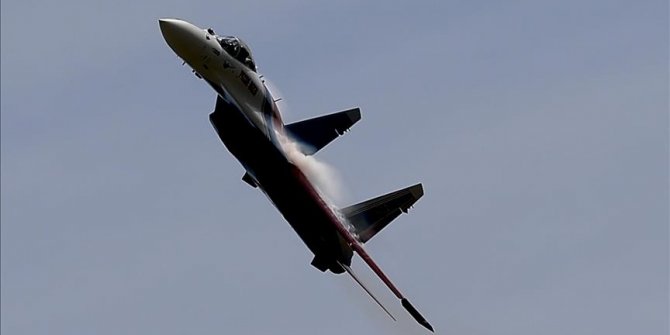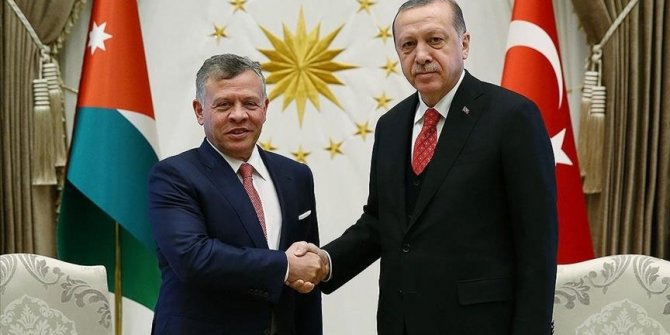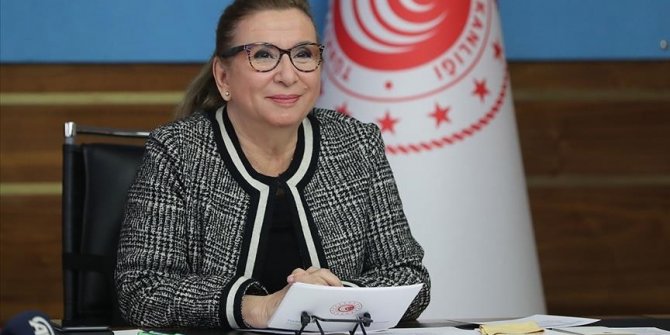Syria, Iraq issues directly affect Turkey: Erdogan

President Recep Tayyip Erdogan said Tuesday one cannot separate the incidents taking place in Syria and Iraq from Turkey since what happens in the neighboring countries makes an impact domestically.
Speaking to his Justice and Development (AK) Party's parliamentary group in capital Ankara, Erdogan said: “Any incident taking place in Syria and Iraq is not independent fromus, they are linked directly to our domestic affairs.”
He again criticized the Kurdish Regional Government (KRG)'s illegitimate referendum in northern Iraq that was recently held on Sep. 25.
"The referendum crisis in northern Iraq is a new attempt to strike the heart of our region with a dagger.
"We hope the northern Iraq administration comes to its senses soon," Erdogan said and urged the KRG President Masoud Barzani to cancel the referendum.
The illegitimate Sept. 25 referendum saw Iraqis in KRG-controlled areas -- and in a handful of territories disputed between Erbil and Baghdad, including historical Turkmen city of Kirkuk and Mosul -- vote on whether to declare independence from Iraq's central government.
"Nobody can insult a nation who grew up with the songs of Kirkuk."
Erdogan said sanctions on northern Iraq would increase in the near future.
"We have made every effort to resolve the crisis in the region with facility, wisdom and compromise, and we will [continue our efforts]. For now, we are just content with embargoes in certain fields."
"If they do not come to their senses, we will not hesitate to take further steps in accordance with the developments," the president said.
According to preliminary poll figures released by the KRG, almost 93 percent of voters had cast ballots in favor of independence from Baghdad.
Decline in interest rates
The illegitimate referendum has been sharply criticized by most regional and international actors, many of whom also warned the poll would further destabilize the Middle East.
Erdogan also evaluated Turkey's recent economic indicators, calling for a further decline in interest rates and attractive market rates for investors.
“Decline of interest rate is still not at desired point. If we cannot have the rates drop further then many troubles await us,” he said.
He added that investment and employment in the country would not increase if interest rates hover at around 20 percent.
According to Undersecretariat of Treasury, annual simple and compound interest rates were 10.56 and 10.84 percent, respectively.
Turkey's consumer prices went up by 11.20 percent in September compared with the same month last year, according to the Turkish Statistical Institute (TurkStat).
In September, the monthly rate of change in the consumer price index was 0.65 percent, up from 0.52 percent in August.
The annual increase in consumer prices was 10.68 percent in August, which increased by 7.29 percent since December 2016.
Since the beginning of this year, the annual inflation saw the lowest level in January -- 9.22 percent -- and hit the highest level at 11.87 in April. The government aims to reach 5 percent inflation in 2020, down from 8.5 percent in 2016, and is predicted to be at 9.5 percent by the end of 2017, in accordance with the country's medium-term program announced on Sept. 27.










